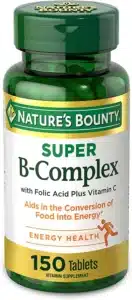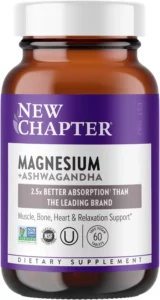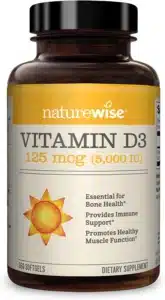Taking care of ourselves as we age is essential, and that includes taking steps to ensure our mental health needs are met. As we age, our psychological needs and concerns can become more complex, making it difficult to maintain positive mental health. Mental health is an essential part of our overall well-being but is often overlooked or ignored altogether.
Taking supplements for mental health is one way to ensure your brain gets the nutrients it needs. However, it’s essential to remember that nutritional supplements are not intended as substitutes for professional medical advice or treatment plans. They should always be taken alongside traditional healthcare services rather than replacing them outright. However, when used correctly, they may offer additional benefits towards managing mental health conditions or improving overall well-being by providing essential micronutrients necessary for healthy living.
In this article, we’ll discuss the best supplements for mental health and how they can help you feel your best.
Vitamin B
B vitamins are one of the most popular supplements for mental health. They are essential for a number of functions in your body, including mood regulation and energy production. Specifically, B vitamins help support the production of neurotransmitters—chemicals in the brain that control moods and emotions. Research has shown that vitamin B can help with depression, anxiety, and other mental health issues. Some great sources of B vitamins include dairy products, vegetables like spinach and broccoli, meat, poultry, fish, eggs, and whole grains.
The vitamin B complex is made up of eight different B vitamins that are essential for proper brain functioning. They are responsible for energy production, nerve cell communication, hormone balance, and more. Vitamin B12 also has been linked with improved memory function and reduced feelings of depression or anxiety in older adults. Taking a daily vitamin B complex can help you feel more energized and better able to handle stressful situations.

Fish Oil
Fish oil is another popular supplement for mental health because it is rich in omega-3 fatty acids. These fatty acids are essential for healthy brain function and have been shown to reduce symptoms of depression. Additionally, fish oil has been linked to improved cognition, which may help improve concentration and focus. It is also a great natural source of vitamin D, which helps maintain strong bones and teeth and supports immune system functioning.
It’s important to note that not all fish oil supplements are created equally. Be sure to select a product that has been tested for contaminants like mercury so you can get the full benefit from this supplement without any potential risks.

Magnesium
Magnesium plays an important role in managing stress levels and improving sleep quality. These are both factors that can affect our mental health significantly. Magnesium also helps regulate hormone balance which can lead to better moods and improved cognitive function. Natural sources of magnesium include almonds, cashews, legumes such as beans and lentils, leafy greens like spinach or kale, avocados, bananas, dark chocolate, and some types of fish such as salmon or mackerel.

Vitamin D
Vitamin D is an essential nutrient that has long been known to have numerous benefits for physical health. However, it has become increasingly apparent in recent years that vitamin D also plays a crucial role in promoting mental well-being.
Vitamin D is actually a group of compounds known as secosteroids. It functions primarily by helping the body absorb calcium, which is needed for healthy bones and muscles. It can also play a role in blood pressure regulation, immune system health, and even mood stability. Studies have found links between inadequate vitamin D levels and depression, anxiety, and other mental health issues.
In addition to helping with mood stability, adequate levels of vitamin D can be beneficial for cognitive functions like memory and focus. It may even help reduce symptoms of Seasonal Affective Disorder (SAD), where people experience bouts of depression during certain times of the year due to lack of natural sunlight exposure.
The best source of Vitamin D is the sun. When sunlight hits our skin, it triggers the production of vitamin D in our bodies. Unfortunately, many people don’t get enough sun exposure due to their lifestyle or living environment. That’s why it’s essential to supplement with foods high in vitamin D, such as fatty fish, egg yolks, beef liver, mushrooms, and fortified milk.

Supplements Should Be Used in Tandem with Other Strategies
It’s important to note that although dietary supplements can help improve mental well-being, they should be used alongside other lifestyle changes. Getting enough sleep and exercising regularly are both key components of good mental health. Eating a balanced diet with plenty of fruits and vegetables will also ensure you get all the essential nutrients you need. If symptoms of anxiety or depression are severe, it’s best to speak with a mental health professional.
Looking for other ways to improve your mental health? Check out our article on the mental health benefits of exercise.
Read Next:
Mental Illness in the Family – How It Affects Women










